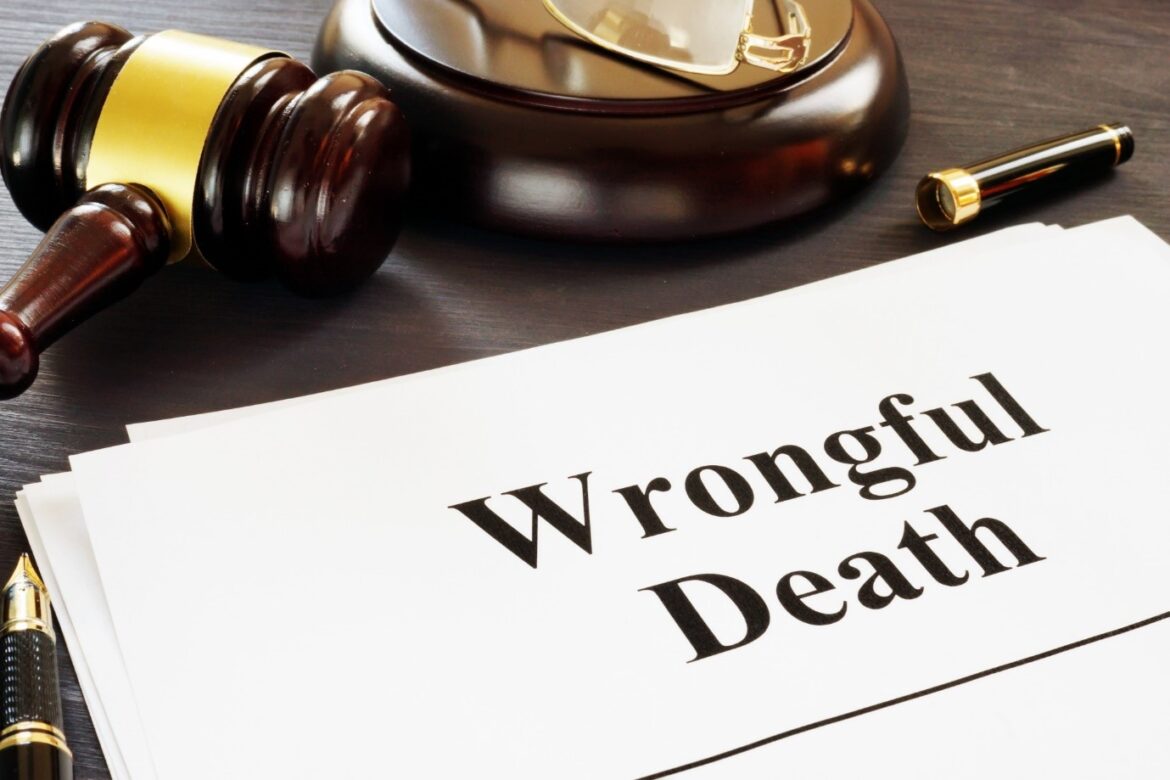In the United States, over 3.38 million people lost their lives in 2020 alone. Most were due to health problems like heart disease, cancer, and stroke. Unfortunately, however, 200,955 deaths were due to unintentional injuries.
Even worse, some unintentional injury deaths classify as wrongful death.
So, what exactly does wrongful death mean, and what are its causes? Most importantly, what legal implications exist for such cases?
Below we’ve answered all those questions, so please read on.
What Is Wrongful Death?
Wrongful death is when a person’s death stems from someone else’s actions or lack thereof. It can occur due to someone else’s recklessness, wrongdoing, or negligence.
In legal matters like wrongful death lawsuits, the term for the person who died is “decedent.” The decedent’s survivors can be the plaintiffs or the party suing someone else. They’re also the case’s “real parties in interest,” acting as the deceased’s representatives.
Real parties in interest are often a decedent’s immediate family members. These include parents, spouses, or children. In some states, siblings and grandparents may also be representatives.
What Can Cause Wrongful Death?
Wrongful deaths can stem from traffic incidents, which claim an estimated 46,000 lives in the U.S. yearly. Such instances may be due to the other driver’s negligence. An example is if the fatal crash resulted from the other party being on a call or texting while driving.
Drivers who operate cars while under the influence may also cause wrongful deaths. Likewise, operating a malfunctioning vehicle can lead to a fatal crash.
Medical malpractice and errors are other common causes of wrongful deaths. Indeed, some estimates place their death toll at 210,000 to 440,000 lives lost yearly. Such mistakes may include incorrect diagnoses, medication prescriptions, and surgical procedures.
Defective products, like car parts and medical devices, can cause wrongful deaths, too. Such deadly defects may also affect pharmaceutical medications.
Premise incidents, including slips, trips, and falls, may also result in wrongful deaths. An example is if a customer who fell down the stairs of a store develops a brain injury and dies afterward. That can be a wrongful death if the store owner is guilty of failing to maintain the safety of the premises.
Some of the over 4,000 annual workplace fatalities in the U.S. may also classify as wrongful death. In such instances, survivors may seek compensation outside workers’ compensation laws. For example, they may sue another at-fault party, like a defective equipment manufacturer.
What Are Its Legal Implications?
A wrongful death lawsuit enables a decedent’s survivors to recover financial compensation. It doesn’t require a criminal act to have occurred and resulted in that person’s death.
For the same reason, a successful wrongful death case won’t result in imprisonment. Instead, it’ll penalize the guilty defendant by making them pay restitution. It’s a monetary compensation that may include economic, non-economic, and sometimes punitive damages.
Economic Damages
Economic damages are compensatory; they compensate the decedent’s survivors for their tragic loss. They include financial losses stemming from the deceased’s untimely passing. Some examples include:
- Medical expenses related to the death
- Funeral costs of the deceased
- A loss of the decedent’s future earnings
- A loss of the deceased’s benefits, such as pension plans
- A loss of inheritance due to the decedent’s death
In some states, traumatized survivors may pursue compensation for their healthcare expenses. For example, following the decedent’s death, their spouse develops post-traumatic stress disorder. The surviving spouse may then seek compensation for their PTSD treatment.
Non-Economic Damages
Like economic damages, non-economic damages are also compensatory. However, they compensate for subjective, non-monetary losses, including pain, suffering, and mental anguish. They also cover loss of companionship, consortium, and enjoyment of life.
If the deceased is a parent, their children may recover damages for loss of guidance. Likewise, parents who lose their kids may sue for loss of parenthood.
Punitive Damages
Sometimes, courts may punish civil case defendants by making them pay punitive damages. They do this if they find the defendants’ actions appalling and terrible.
Punitive damages also go by the term “exemplary damages.” One reason is that courts use such punishments to make an example out of a guilty defendant. For example, they aim to deter the defendant and others from engaging in the same conduct.
Very few wrongful death cases award punitive damages, though.
For example, most California plaintiffs cannot claim such damages. One exception is if they can prove their loved one’s death resulted from a felony homicide.
In states that allow punitive damages, they often set limitations or caps. Their courts also require proof of the defendant’s outrageous conduct.
How Do You File a Wrongful Death Lawsuit?
First, consider speaking to a wrongful death lawyer who can assess your case for free. Here’s a guide with more info on these no-cost, no-obligation case assessments.
During the consult, tell the attorney everything you know of your loved one’s death. Don’t spare any details, but ensure you stick to the facts; this way, you can learn if you even have a case.
The wrongful death attorney may determine you have a viable case if:
- It’s possible to prove the defendant’s negligence
- The defendant’s recklessness or wrongdoing is provable
- You suffered (and will suffer) financial losses related to the death
The lawyer will also tell you whether you’re an eligible survivor. If you are, they’ll give you an idea of how much your case’s value is.
If you’re comfortable with the attorney, consider hiring them to help with your case. If not, you can always speak to other wrongful death lawyers. The most important thing is choosing a legal professional you can trust.
Hiring a wrongful death law firm or lawyer is your best bet, as proving negligence is challenging. It requires a thorough investigation, including reviewing records and speaking to witnesses. It may also involve working with other experts, such as the police and doctors.
Consult a Wrongful Death Lawyer Today
As someone who has lost a loved one due to someone else’s negligence, all you may want to do is grieve. Thus, it might be best to hire a wrongful death lawyer to take over your case and give you time to mourn. At the same time, you can ensure someone capable fights for your rights and can help you recover damages.
If you found this article informative, we have more guides to share with you. So, browse our latest news and blog posts now!
Related Posts












